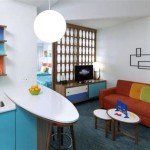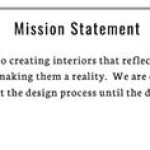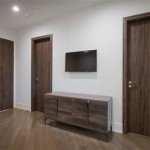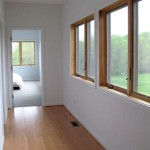Understanding Interior Decorating Design
Interior decorating design is a multifaceted field concerned with enhancing the interior of a building to achieve a healthier and more aesthetically pleasing environment for the people using the space. It goes beyond simply selecting appealing furniture and paint colors. It involves a systematic approach to planning, designing, and managing interior spaces to optimize functionality, safety, comfort, and visual appeal. This often necessitates a thorough understanding of architectural principles, building codes, ergonomics, and sustainable design practices.
The primary goal of interior decorating design is to create spaces that are not only visually appealing but also functional and tailored to the specific needs and preferences of the occupants. This involves careful consideration of various elements, including spatial planning, material selection, color schemes, lighting design, furniture arrangement, and the incorporation of decorative accessories. Effective interior design can significantly impact the quality of life by improving mood, productivity, and overall well-being.
Distinguishing between interior decorating and interior design is crucial. While the terms are often used interchangeably, they represent distinct professions with different scopes of practice. Interior decorating focuses primarily on the aesthetic aspects of a space, involving the selection and arrangement of furnishings, accessories, and finishes to enhance its visual appeal. Interior design, on the other hand, encompasses a broader range of responsibilities, including space planning, structural alterations, and compliance with building codes and regulations. Interior designers often collaborate with architects and contractors to ensure that the interior space is both functional and aesthetically pleasing.
The process of creating effective interior decorating design typically begins with a thorough assessment of the client's needs, preferences, and budget. This involves conducting interviews, reviewing architectural plans, and conducting site visits to understand the existing space and its potential. Based on this information, the designer develops a concept or design brief that outlines the overall vision for the project. This concept serves as a guiding principle for all subsequent design decisions.
Once the concept is established, the designer begins to develop detailed plans and specifications. This includes creating floor plans that illustrate the proposed layout of the space, selecting materials and finishes, specifying furniture and fixtures, and designing lighting schemes. The designer also prepares detailed drawings and renderings to communicate the design to the client and other stakeholders. These drawings provide a visual representation of the proposed space and allow the client to provide feedback and suggestions.
The Importance of Space Planning
Space planning is a fundamental aspect of interior decorating design. It involves the strategic arrangement of furniture, fixtures, and other elements within a space to optimize its functionality and flow. Effective space planning considers factors such as traffic patterns, accessibility, and sightlines to create a comfortable and efficient environment. A poorly planned space can feel cramped, cluttered, and difficult to navigate, while a well-planned space can feel open, inviting, and easy to use.
The principles of space planning include creating focal points, establishing clear zones, and maintaining visual balance. Focal points are elements that draw the eye and create a sense of visual interest. These can be architectural features, pieces of artwork, or strategically placed furniture. Establishing clear zones involves dividing the space into distinct areas for different activities, such as working, relaxing, or entertaining. Maintaining visual balance ensures that the space feels harmonious and well-proportioned. This can be achieved through the careful placement of furniture, the use of complementary colors, and the incorporation of symmetrical or asymmetrical arrangements.
Considerations in space planning also include the users’ needs, preferences, and lifestyles. For example, a family with young children will require different design considerations compared to a single professional. The space should reflect the user’s personality and support their daily activities. Moreover, universal design principles should also be applied where possible to ensure accessibility for people of all abilities.
Space planning also involves considering the relationship between the interior space and the exterior environment. Natural light, views, and access to outdoor spaces can significantly enhance the quality of the indoor environment. Designers often seek to maximize the use of natural light by incorporating large windows and skylights, and by strategically placing furniture to avoid blocking views. They may also create indoor-outdoor connections by incorporating patios, balconies, and other outdoor spaces.
Color Theory and Material Selection
Color theory is a critical component of interior decorating design, as it plays a significant role in shaping the mood and ambiance of a space. Understanding the principles of color theory allows designers to create harmonious and visually appealing color palettes that reflect the desired aesthetic. Different colors evoke different emotions and sensations, and the careful selection of colors can significantly impact the overall feeling of a room.
The color wheel is a fundamental tool in color theory, illustrating the relationships between different colors. Primary colors (red, yellow, and blue) are the foundation of all other colors. Secondary colors (green, orange, and purple) are created by mixing two primary colors. Tertiary colors are created by mixing a primary color with a secondary color. Colors can also be described in terms of their hue, saturation, and value. Hue refers to the pure color, saturation refers to the intensity of the color, and value refers to the lightness or darkness of the color.
Common color schemes include monochromatic, analogous, complementary, and triadic. A monochromatic color scheme uses different shades and tints of a single color. An analogous color scheme uses colors that are adjacent to each other on the color wheel. A complementary color scheme uses colors that are opposite each other on the color wheel. A triadic color scheme uses three colors that are equally spaced on the color wheel. The selection of a color scheme depends on the desired mood and aesthetic. For example, a monochromatic color scheme can create a calming and sophisticated atmosphere, while a complementary color scheme can create a vibrant and energetic atmosphere.
Material selection is another important aspect of interior decorating design. The choice of materials can significantly impact the aesthetic, functionality, and durability of a space. Materials should be selected based on their performance characteristics, aesthetic qualities, and environmental impact. Sustainable materials, such as recycled content products, low-VOC paints, and responsibly harvested wood, are increasingly popular choices for interior design projects.
Common materials used in interior decorating design include flooring, wall coverings, fabrics, and furniture. Flooring options include hardwood, tile, carpet, and laminate. Wall coverings include paint, wallpaper, and textured finishes. Fabrics are used for upholstery, curtains, and other decorative elements. Furniture can be made from a variety of materials, including wood, metal, and plastic. The selection of materials should be based on the specific needs of the space and the desired aesthetic. For example, a kitchen may require durable and easy-to-clean materials, while a bedroom may benefit from soft and comfortable materials.
Lighting Design Principles
Lighting design is an integral part of interior decorating design, playing a crucial role in shaping the ambiance and functionality of a space. Effective lighting design considers the different types of lighting, the placement of fixtures, and the control systems used to adjust the light levels. It is not just about illuminating a space; it’s about creating the right atmosphere and enhancing the visual appeal.
There are three primary types of lighting: ambient, task, and accent. Ambient lighting provides general illumination and creates the overall mood of the space. Task lighting provides focused illumination for specific activities, such as reading or cooking. Accent lighting highlights specific features, such as artwork or architectural details. A well-designed lighting scheme incorporates all three types of lighting to create a balanced and layered effect.
The placement of lighting fixtures is critical for achieving the desired effect. Fixtures should be strategically positioned to maximize illumination and minimize glare. Recessed lighting, track lighting, and pendant lighting are commonly used for ambient lighting. Table lamps, floor lamps, and under-cabinet lighting are commonly used for task lighting. Spotlights, wall washers, and picture lights are commonly used for accent lighting. The height, angle, and spacing of the fixtures should be carefully considered to ensure optimal performance.
Control systems allow users to adjust the light levels and create different lighting scenarios. Dimmers are a common control system that allows users to adjust the brightness of the lights. Smart lighting systems offer more advanced control options, allowing users to create customized lighting scenes and control the lights remotely. Natural light should also be considered in lighting design. Maximizing natural light can reduce energy consumption and create a more pleasant and inviting environment.
Furthermore, the color temperature of light bulbs affects how we perceive colors in a room. Warm light, with a lower color temperature (around 2700-3000K), creates a cozy and inviting atmosphere, while cool light, with a higher color temperature (around 4000-5000K), creates a brighter and more energetic atmosphere. The choice of color temperature depends on the specific needs of the space and the desired mood.

70 Best Interior Design Ideas From Professional Designers

Latest Interior Design Ideas For Your Home Decor Wooden Street

Interior Design Styles 101 The Ultimate Guide To Decorating In 2024 Decorilla

75 Beautiful Living Room Ideas For Decorating Inspiration

Home Decorating Ideas Interior Design

100 Home Decor Ideas The Ultimate Inspiration For Interior Designers

10 N Interior Design Tips To Add Some Desi Drama Your Home

60 Clever Home Decor Ideas That Designers Swear By

5 Secret Home Decorating Tips From Interior Designers Nativa Interiors

How To Design A Room Like An Interior Designer Step By Greenhouse Studio








